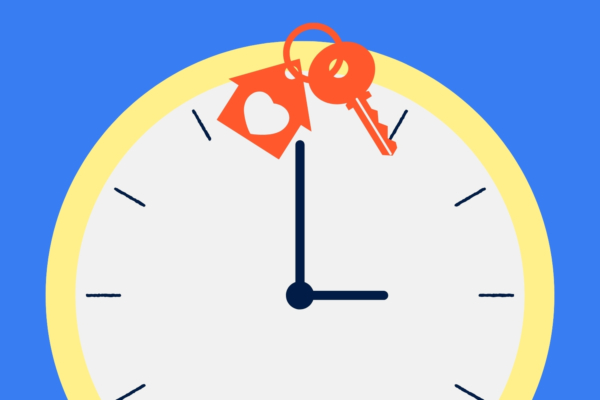
What Does a Mortgage Loan Originator Do?

When you apply for a home loan, a team of professionals at your credit union or bank will work together to process your application and create your mortgage. One role on this mortgage team is the mortgage loan originator.
As a homebuyer, you will work directly with a mortgage loan originator to get your home financed. You also might be wondering what, exactly, their role is in the process and how they help you. In this article, we’ll talk about who a mortgage loan originator is and what they do.
What is a mortgage loan originator?
A mortgage loan originator (MLO), also known sometimes as a mortgage loan officer, is a financial professional that helps borrowers through the mortgage application and origination process. Mortgage loan originators are employed by the lender and will guide borrowers as they prepare and submit their paperwork, wait for their loan to be approved, and approach closing.
What does a mortgage loan originator do?
If you’re applying for a mortgage, the first person that you’ll likely talk to at the credit union or bank will be an MLO. These mortgage professionals have vast and comprehensive knowledge on things like:
- Mortgage rules and regulations: There are numerous federal laws that govern mortgage lending. An MLO will know these laws and help ensure that you (and the bank) are in compliance.
- Lending products: Not all home mortgages are the same. An MLO will help you find the perfect mortgage product for your unique financial and home buying situation.
- Documentation required for a mortgage loan: To be approved for a home mortgage, you’ll need to submit documentation to the lender that proves your income, creditworthiness, and more. A mortgage loan originator will be able to tell you what specific documents you need and what documents may work in unusual circumstances.
Throughout the mortgage application and approval process, a mortgage loan originator will put you at ease as you navigate the requirements. They will collect and process the necessary paperwork and manage the logistics of the financing process. They’ll also serve as your point of contact if you have any questions, and relay information from other members of the lending team.
You may even work with a mortgage loan originator before you apply for the loan. Oftentimes, MLOs will also be the ones to help you through the mortgage prequalification process. Mortgage prequalification allows you to shop for homes with the confidence that you are likely to be approved for a certain amount based on your current financial situation.
Using a Local Lender
Taking out a loan is a big deal, which is why you should work with someone that you can trust— like a local mortgage lender.
Work with someone that you can trust— like a local mortgage lender.”
Working with a local lender and mortgage loan originator has several major advantages. You’ll be working with someone who knows the local market and can give you a personalized experience. Instead of dealing with a faceless name online, you will be able to meet in person to go over anything you may have questions about.
Local lenders with in-house underwriting also tend to be more flexible— which is good news for borrowers who may have issues providing certain types of documentation or have a complicated financial situation. They can craft a mortgage that works for you and your finances.
What is the mortgage loan origination fee?
You might have also heard of a mortgage origination fee. Buyers pay this fee at closing to cover the cost of processing your loan. This cost is typically between .5% and 1% of the loan amount and helps pay the mortgage loan originator for their work.
Other People to Know
The mortgage process is full of people and roles that might be a little unfamiliar. To clear up any confusion, we’ve compiled some definitions of other professionals you may encounter in the mortgage and home buying process.
Appraiser
Before a lender approves a loan, they will want to ensure that your house is worth the price that you’re paying for it. The lender will hire an appraiser to determine the fair market value of the property.
Broker
There are two types of brokers that you may encounter: a mortgage broker and a real estate broker. A real estate broker helps buyers find a home; a mortgage broker matches buyers with a lending institution that can offer them the best rates.
Home Inspector
Unless you waive your right to a home inspection, you’ll likely have a home inspector come out and determine if there are any issues with the home before you purchase it. Though an appraiser will also consider the condition of the house, an inspector will take an in-depth look at everything related to health and safety in a home. They’ll also ensure that all of the systems (like HVAC, plumbing, electrical, etc.) in a house are in proper working order.
Homeowners Insurance Agent
If you have a mortgage, the lender will require you to insure the home. If anything catastrophic were to happen to it, the lender will want to ensure that they can recoup their money somehow. Your insurance agent will help craft a policy that’s right for your home and meets lender requirements.
Loan Servicer
A loan servicer will take care of everything pertaining to your loan after closing and the disbursement of your funds. Your loan servicer will handle billing and the day-to-day loan management tasks. They will answer any questions you have once you start making payments, keep track of what you’ve paid, and manage your escrow account.
Mortgage Lender
Your mortgage lender is the financial institution lending you the money for your new house and who your mortgage loan originator most likely works for.
Real Estate Agent
Your real estate agent is an invaluable resource for home buyers. They will help you throughout the process by:
- Finding the perfect home
- Helping you submit an offer
- Navigating things like inspections and negotiations
- Guiding you through the closing process
Underwriter
A mortgage underwriter is another part of the mortgage team. This will be the individual who verifies your income, assets, debts, and property details to assess the risk involved in loaning you money. If the underwriter determines that the risk is too high, you may be denied the mortgage.
Ensuring a Positive Mortgage Experience
Taking out a mortgage can be an intimidating process. Working with a local mortgage loan originator can ensure that you have an overall positive home buying and mortgage experience. Though they work for a financial institution, a mortgage loan originator will help you choose the best loan product for your situation. And if you get lost along the way, know that your MLO will be there to help you through every step of the process, from pre-qualification to closing.
Looking for a mortgage lender?
Learn more about Amplify’s mortgage loans, and apply today!

